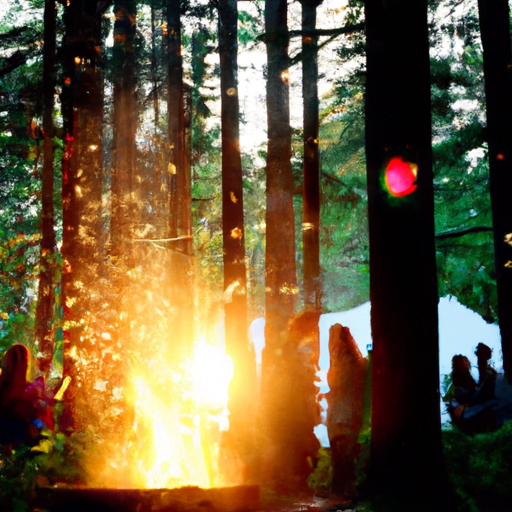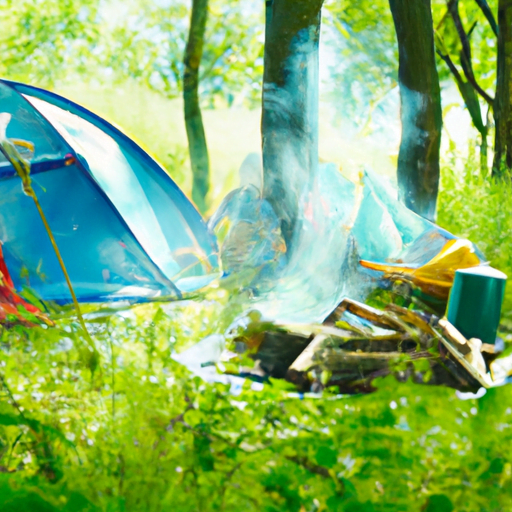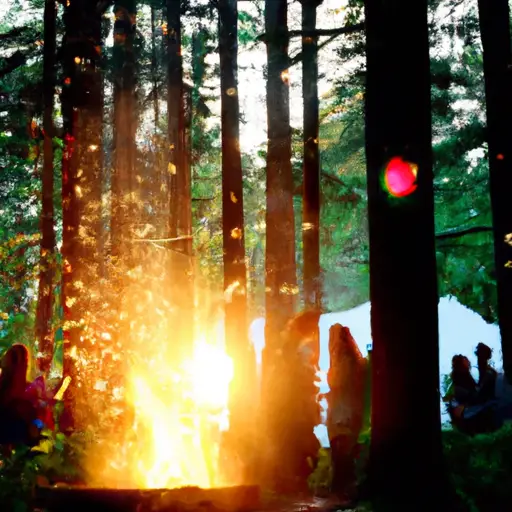I’ve often wondered if there are any festivals or gatherings out there that fully embrace the off-grid lifestyle. You know, the kind where people disconnect from the hustle and bustle of modern life and come together in nature to celebrate, learn, and share. It’s an intriguing concept, isn’t it? Imagine a festival where the focus is on self-sustainability, renewable energy, and harmonious coexistence with the environment. Well, guess what? It turns out that such events do exist, and they are becoming a growing movement across the globe. From off-grid music festivals to sustainable living gatherings, these unique experiences offer a glimpse into a more conscious and eco-friendly way of life. So, if you’re ready to embark on an unforgettable adventure where you can unplug, reconnect with nature, and forge meaningful connections with like-minded individuals, then read on to discover some of the off-grid festivals and gatherings happening around the world.
What are off-grid festivals and gatherings?

Definition of off-grid festivals
Off-grid festivals and gatherings are events that take place in remote locations, completely disconnected from the traditional sources of power and utilities. These events are designed to provide an immersive and sustainable experience, focusing on self-sufficiency, environmental consciousness, and reducing waste and pollution. Participants at off-grid festivals embrace a lifestyle that is in harmony with nature and seek to create a temporary community that emphasizes connection, sustainability, and creativity.
Purpose of off-grid festivals
The purpose of off-grid festivals is to create a space where individuals can disconnect from the fast-paced modern world and reconnect with nature, their creativity, and themselves. These events aim to challenge the traditional norms of consumerism and excess, promoting the values of sustainable living, community building, and personal growth. By providing an alternative way of living and experiencing the world, off-grid festivals aim to inspire and empower individuals to adopt sustainable practices in their daily lives.
Benefits of off-grid festivals or gatherings
Environmental sustainability
One of the significant benefits of off-grid festivals is their commitment to environmental sustainability. By utilizing renewable energy sources and minimizing waste generation, these events promote a low-carbon footprint and serve as a shining example of how to organize large-scale gatherings in an eco-friendly manner. Off-grid festivals often feature innovative sustainable technologies such as solar power, wind turbines, and biomass systems, demonstrating the possibilities of clean energy solutions.
Connection with nature
Off-grid festivals offer a unique opportunity to reconnect with nature in a profound and meaningful way. Being immersed in a remote natural environment allows individuals to fully appreciate the beauty and serenity of the natural world. Participants can engage in outdoor activities such as hiking, swimming, and stargazing, fostering a deep sense of connection and respect for the environment. The absence of modern distractions and the presence of like-minded individuals who share a love for nature create an atmosphere conducive to personal growth and introspection.
Minimal waste and pollution
Off-grid festivals prioritize minimizing waste and pollution by employing sustainable practices such as composting, recycling, and water conservation. These events often promote a “Leave No Trace” ethos, encouraging participants to clean up after themselves and reduce their environmental impact. By adopting a zero-waste mindset, off-grid festivals set an example for responsible resource consumption and waste management. Additionally, the remote locations of these festivals ensure that the ecosystems and surrounding communities are protected from the negative effects of pollution and excessive consumption.
Types of off-grid festivals or gatherings
Eco-friendly festivals
Eco-friendly festivals prioritize sustainability and environmental consciousness. These events often focus on showcasing environmentally friendly products, services, and technologies. Eco-friendly festivals typically feature workshops and educational sessions on topics such as renewable energy, organic farming, and eco-friendly practices. The vendors and exhibitors at these festivals are carefully selected to align with the values of sustainability and offer products that are ethically and environmentally responsible.
Sustainable living gatherings
Sustainable living gatherings are retreat-like events that aim to educate and inspire individuals to adopt a more sustainable lifestyle. These gatherings provide hands-on workshops, lectures, and discussions on various topics such as permaculture, natural building, and renewable energy. Participants are encouraged to learn practical skills and techniques that they can apply in their everyday lives. Sustainable living gatherings often emphasize the importance of self-sufficiency, community resilience, and regenerative practices.
Off the grid retreats
Off the grid retreats provide participants with an opportunity to step away from the chaos of modern life and immerse themselves in a secluded and natural setting. These retreats often focus on meditation, mindfulness, and spiritual practices. Participants can disconnect from technology and reconnect with themselves through activities such as yoga, meditation, and nature walks. Off the grid retreats aim to provide a space for relaxation, rejuvenation, and personal growth in a serene and pristine environment.
Popular off-grid festivals or gatherings around the world
Burning Man (United States)
Burning Man is arguably one of the most well-known off-grid festivals in the world. Held annually in the Black Rock Desert of Nevada, United States, Burning Man attracts tens of thousands of participants who come together to create a temporary city dedicated to art, self-expression, and community. The event’s principles, including radical self-reliance, decommodification, and leave no trace, align with the ethos of off-grid festivals. Burning Man emphasizes a gift economy, encouraging participants to offer their skills, art, and resources freely, fostering a sense of communal spirit and collaboration.
Boom Festival (Portugal)
Boom Festival, held in Portugal every two years, is renowned for its commitment to sustainability and environmental consciousness. The festival showcases a diverse lineup of music, art, and workshops, emphasizing themes of personal and global transformation. Boom Festival strives to be a zero-waste event, implementing various sustainable practices such as composting toilets, recycling stations, and solar-powered stages. The event’s mission is to create a temporary utopian community that embraces diversity, creativity, and environmental responsibility.
Bhakti Fest (United States)
Bhakti Fest, held in Joshua Tree, California, celebrates the devotional and heart-centered aspects of yoga, music, and spiritual practices. This off-grid festival features yoga workshops, meditation sessions, and performances by renowned musicians and artists. Bhakti Fest promotes sustainable living practices, with a focus on conscious eating, waste reduction, and honoring the earth. The event aims to create a space where participants can deepen their spiritual practices while fostering a sense of unity, love, and respect for all beings and the planet.
Envision Festival (Costa Rica)
Envision Festival takes place in Uvita, Costa Rica, and offers a unique blend of music, art, yoga, workshops, and environmental sustainability initiatives. The festival seeks to inspire and educate participants about regenerative practices and solutions to ecological challenges. Envision Festival implements sustainable measures such as on-site composting, portable showers, and eco-restrooms. The event also supports local community projects and initiatives, showcasing the importance of collaboration and integration with the surrounding communities.
How to organize an off-grid festival or gathering

Choosing an appropriate location
Selecting the right location is crucial when organizing an off-grid festival or gathering. The site should be remote enough to provide an authentic off-grid experience but also accessible and safe for attendees. Considerations such as access to water sources, waste disposal facilities, and renewable energy options should be taken into account. It is also important to ensure that the location aligns with the values and ethos of the event.
Sourcing renewable energy
Off-grid festivals often rely on renewable energy sources to power the event. Solar panels, wind turbines, and biomass systems can be used to generate electricity. Collaborating with experts in renewable energy can help ensure a reliable and sustainable power supply. Balancing energy needs with conservation efforts is essential to minimize environmental impact.
Eco-friendly waste management
Implementing effective waste management systems is crucial for off-grid festivals to minimize their environmental impact. Providing recycling stations, composting facilities, and education on responsible waste disposal can encourage participants to reduce, reuse, and recycle. Engaging local waste management organizations and volunteers can contribute to a successful waste management strategy.
Challenges of organizing off-grid festivals or gatherings
Logistics and infrastructure
Organizing off-grid festivals presents numerous logistical challenges. Transportation of supplies, equipment, and participants to remote locations can be complex and time-consuming. Building infrastructure such as stages, structures, and sanitation facilities from scratch requires careful planning, coordination, and financial resources. The limited availability of amenities and services in remote areas necessitates careful consideration of logistics to ensure the comfort and safety of attendees.
Limited resources
Off-grid festivals often operate with limited resources, including funding, materials, and personnel. Securing sponsorship, grants, and donations can help alleviate financial constraints. It is essential to prioritize resource allocation to areas that align with the festival’s core values and support its sustainability objectives. Creativity and resourcefulness are key in making the most of the available resources and creating a memorable and impactful event.
Permits and regulations
Obtaining the necessary permits and complying with local regulations can be a complex and time-consuming process, particularly for events held in remote locations. Engaging with local authorities, environmental agencies, and other relevant stakeholders is crucial for obtaining the required approvals and ensuring compliance with regulations. It is important to understand the legal and environmental requirements of the hosting location and incorporate them into the planning and execution of the festival.
Tips for attending an off-grid festival or gathering
Bring essential supplies
Attending an off-grid festival requires careful consideration of essential supplies. Since these events often take place in remote locations, it is important to pack necessities such as food, water, camping gear, and toiletries. Researching the specific requirements and recommendations provided by the event organizers can help ensure a comfortable and enjoyable experience.
Practice Leave No Trace principles
One of the key principles of off-grid festivals is leaving no trace. Participants should be conscious of the impact they have on the environment and strive to minimize waste and pollution. This includes properly disposing of trash, recycling whenever possible, and leaving the natural surroundings as they were found. Being mindful of one’s actions and respecting the environment are fundamental to the off-grid festival experience.
Participate in sustainable activities
Off-grid festivals offer numerous opportunities for participants to engage in sustainable activities. Attendees can join workshops and discussions on eco-friendly practices, take part in sustainable art projects, or volunteer for recycling or composting initiatives. By actively participating in these activities, individuals can contribute to the collective effort towards sustainability and create a positive impact.
Impacts and legacy of off-grid festivals or gatherings
Community building and empowerment
Off-grid festivals foster a sense of community and provide a platform for individuals to connect, collaborate, and share ideas. Participants often form lasting connections and networks that extend beyond the duration of the event. The inclusive and supportive environment of off-grid festivals empowers individuals to explore their creativity, passions, and potential, generating a positive ripple effect in their personal lives and communities.
Inspiring sustainable lifestyles
Off-grid festivals serve as powerful catalysts for inspiring and promoting sustainable lifestyles. Attending these events exposes individuals to alternative ways of living that prioritize environmental consciousness, self-sufficiency, and community cooperation. The immersive experience and firsthand exposure to sustainable practices can spark a desire for change and motivate attendees to adopt more sustainable habits in their daily lives.
Educational opportunities
Off-grid festivals provide valuable educational opportunities through workshops, discussions, and hands-on experiences. Attendees can learn practical skills and knowledge in areas such as renewable energy, organic farming, and waste management. The diverse range of topics covered at these festivals promotes lifelong learning and encourages individuals to become agents of change in their communities and beyond.
The future of off-grid festivals or gatherings
Innovation in sustainable technologies
The future of off-grid festivals lies in the continuous innovation and integration of sustainable technologies. Advancements in renewable energy, waste management systems, and water conservation methods will play a crucial role in enhancing the sustainability of these events. From portable solar panels to innovative composting solutions, the incorporation of cutting-edge technologies will contribute to creating even more eco-friendly and self-sufficient off-grid festivals.
Increasing popularity and attendance
Off-grid festivals have been steadily gaining popularity in recent years as individuals seek alternative forms of entertainment and experiences. The unique atmosphere and focus on sustainability have attracted a diverse range of participants, including those interested in art, music, spirituality, and environmental activism. The growing popularity of off-grid festivals is likely to result in increased attendance and an even greater diversity of offerings and experiences.
Integration of local communities
As off-grid festivals continue to grow, the integration of local communities will become increasingly important. Engaging with local residents, businesses, and organizations can foster mutual respect, support, and collaboration. Off-grid festivals can benefit the local economy by supporting local vendors, artisans, and service providers. Collaborative efforts can also lead to the implementation of long-term sustainable initiatives that benefit both the festival and the community.
Conclusion
Off-grid festivals and gatherings provide a unique opportunity for individuals to disconnect from the modern world and reconnect with nature, community, and sustainable living. These events prioritize environmental sustainability, emphasize community-building, and inspire individuals to adopt more sustainable lifestyles. Through innovative approaches to waste management, the use of renewable energy, and educational opportunities, off-grid festivals serve as powerful catalysts for positive change. As they continue to grow in popularity, off-grid festivals have the potential to create a lasting legacy of environmental consciousness and community empowerment. The future of off-grid festivals is bright, with an increasing focus on sustainability, innovation, and integration with local communities.




